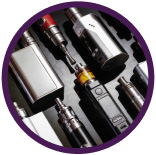
Confidential
SHARP is completely anonymous and the data is confidential. The results can’t be tied back to students or their families.

Important
The SHARP survey has provided insight into things affecting our kids for more than 20 years.

Voluntary
Parent and caregiver consent is—and has always been—required. Only students who have parent permission are allowed to take the survey.

Local
SHARP is used by local prevention teams, community leaders, and schools to build effective programs and put resources where they are needed most.
Learn more:
Explore and understand the data
What we’ve learned from SHARP data
The most important information we get from the SHARP survey isn’t knowing how many adolescents face challenges, or engage in risky or harmful behaviors. The most important information we get helps us connect the dots about what actually works to help kids navigate this time in their lives and keeps them from making harmful choices (often called protective factors).

52,679
students participated in 2023
80%
of kids spend 2 or more hours per school day playing video games, texting, or using social media
54%
worry about suicide of one of their peers
7.4%
use vape products that contained either nicotine or marijuana or both
56.5%
eat at least one meal with their family 5 or more times a week
Where can I find the SHARP data?
Download the statewide report or region-specific reports below to explore SHARP data or use the Utah SHARP Web Tool.
The 2023 data is also available to query on the Indicator-Based Information System for Public Health or IBIS-PH website (under the “Utah Prevention Needs Assessment” or “Youth Risk Behavior Survey” data query tab).
See the benefits
Parents and caregivers see the benefits of SHARP



Why participate
How SHARP can help
"My daughter has taken the SHARP survey each time it was given since 6th grade. And each time it’s given us the opportunity to talk about challenges in our kids’ lives and at school—and what they wish we did better to connect as a family."
Jenny Johnson
Mom of 2 teens
Davis County
Ryan Stephens
School Counselor
Snow Canyon Middle School
"As the mayor of Washington Terrace, I have served on the Bonneville Communities That Care Key Leader Board for 12 years. SHARP data is an important part of our Board because we see improvement in the numbers every year. Our successes, proven by real numbers, keeps me excited to continue our efforts to protect every student within our coalition."
Mark Allen
Mayor
Washington Terrace
SHARP helps parents and caregivers
SHARP data shows parents are one of the strongest influences for good in a child’s life. Here are just a few tools, programs, and resources to help you navigate the teen years—each one developed because of what we learned from the SHARP survey.
It can be hard to know if your child’s thoughts and behaviors are normal for their age or a sign of something more serious. Sometimes you may not know where to turn for help—and you may need help right now.
Youth stabilization and mobile response teams
Call 1-833-723-3326 or 988 and get help from a stabilization and mobile response team. Trained, caring professionals can provide free resources, services, and support. You can call for help 24 hours a day, 7 days a week. Learn more
Safe UT
A free, confidential crisis chat and tip line that provides real-time crisis intervention and mental health support for students, parents, caregivers, and educators—right from your smartphone. Learn more

Does my school participate?
The SHARP survey is administered in the Spring (between February and May) every other year (2023, 2025, etc.). Each school district and charter school is invited to participate in the SHARP survey in the early Spring to early Summer of the year before the survey will be given. School districts will decide to participate in Spring 2024 for the 2025 survey. The school district superintendent makes that decision.
Districts and schools that choose to participate are required to send out a parent consent letter before the survey can be given to students. School districts choose how parent consent will be collected and tracked. Talk to your school district or school principal if you have questions about how and when you will be asked for consent.
Some school districts may choose to get parent consent when other classroom consent forms are gathered during fall registration or the beginning of each term.
Others may choose to send out the parent consent letter and form a few weeks before the survey is given to students.
School districts can choose to use electronic or paper-based consent forms.
Schools must track which students have parent consent. Schools do not share this information with the Utah Department of Health and Human Services or any other agency. Only students who have parent permission are allowed to take the survey. Students can choose to not take the survey, stop the survey at any time, or choose to skip any questions they don't understand or don't want to answer.
"The SHARP survey is the most comprehensive source of information on the challenges and opportunities our youth face—because the information comes from youth themselves. Good data helps us identify risks and develop policies and interventions that help all Utah families and youth feel supported, safe, and able to thrive. We appreciate having parents and school districts actively involved in this survey."
Gov. Spencer J. Cox
What is SHARP?
Get to know SHARP
Frequently asked questions
"Our city police have seen significant increases in incidents related to domestic conflict and mental health over the years. Data from the SHARP survey offers early warning signs among our youth and gets city officials brainstorming how we can help. Using the data, we work with community partners to bring classes to our city that strengthen families and boost children's mental health."
Marie Dougherty
Clinton City Council
Survey questions and privacy
SHARP is confidential and anonymous
Students need to feel safe. That’s why the SHARP survey is confidential and anonymous. Nothing your child reports can be linked to them or your family. Your family’s privacy is a priority.
Parent or caregiver consent is—and has always been—required. SHARP is an opt-in survey. Only students who have parent permission are allowed to take the survey. Students who don’t have permission or who don’t return the consent form are not allowed to take the survey.
What your kids are told
SHARP is an opportunity for adolescents to tell us about the many challenges they face in today’s world—and how well they think they’re prepared to handle them—without the fear of getting in trouble or the risk of someone thinking less of them.
Students can choose to participate or not. They can stop the survey at any time or skip any questions they don’t understand or don’t want to answer.
Want to see the type of questions SHARP asks?
There are 5 different sets of questions used in the SHARP survey. Each form has a core set of questions.

Talking to your kids about SHARP
You can use SHARP as a conversation starter for having those tough conversations at home—even for families who choose to not participate—about drug and alcohol use, social media, and even why kids need more sleep!
Asking students about substance use or mental health does not cause psychological or other harm. This is a misconception that is not backed by research. Research shows simply asking students about a behavior does not lead them to do it. Talking about substance use or suicide does not cause students to turn to the behavior. The opposite is true—the open discussion of the behavior can prevent it.
- Talk to your child about your family’s decision to participate and why.
- Remind your child they may opt-out of the survey entirely or skip any question they don’t want to answer.
- Encourage your child to be honest in their responses and take it seriously.
- Ask them if they have any concerns after taking the survey. Do they worry about any of the topics asked on the survey? Do they think these are problems at their school or with their peers?
- Reinforce your family’s values about the topics asked about in SHARP.
- Listen to your child’s responses and any concerns they have. Remind them they can always talk to you or another trusted adult if they need help.
- Provide support or reach out for professional help and resources if needed.
- Find ways to connect with your teen. The more involved you are in your child’s life, the less likely they are to drink, smoke, or use drugs.
Educational materials
Flyer (English & Español)
Parent consent letter (English & Español)
Utah SHARP Collateral Order Form
Business Card
Postcard
Rack Card
